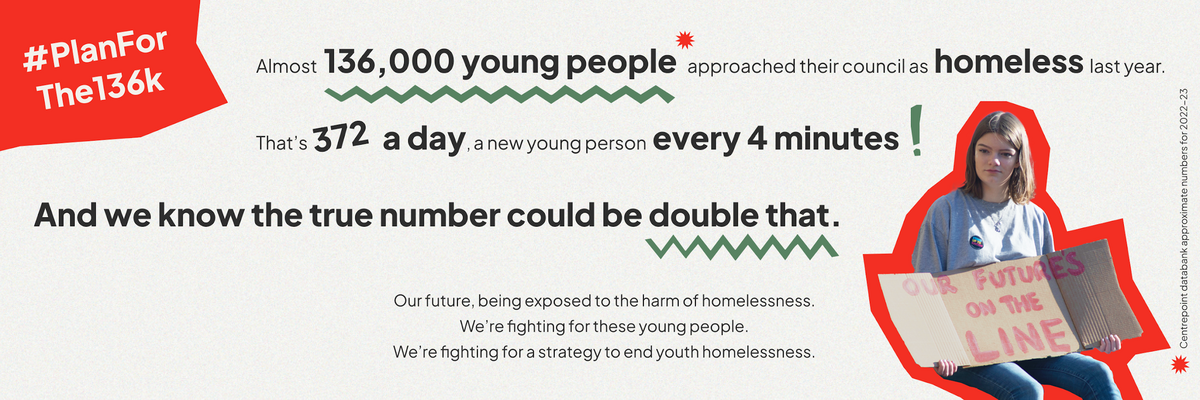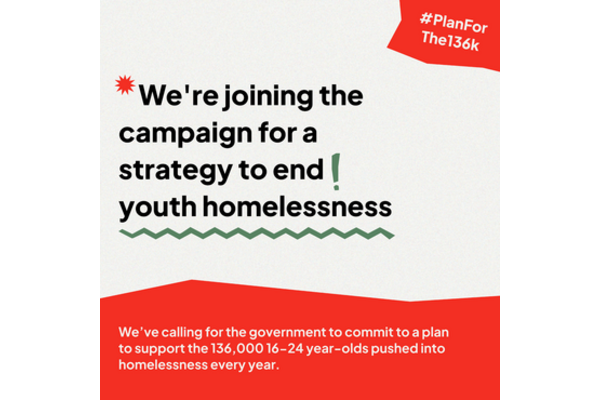Being without a home is something that nobody should have to endure, but sadly, every year, that’s the reality for thousands of young people in the UK.
Last year, 136,000 young people were forced to register as homeless with their councils, or 372 a day.
These are 16- to 25-year-olds who should be hopeful and excited for their futures – starting college or university, beginning their first jobs and discovering their potential – but instead are finding themselves without the most basic of needs. And the crisis is only getting worse, with the figure an increase of 5% on the year before.
That’s why the Foyer Federation has joined with more than 140 charities to call on the new government to adopt a cross-departmental strategy to end youth homelessness, and a bolder, youth-specific response.
“We are passionate not only about highlighting the huge youth homelessness crisis at a political level but more importantly working together with our members, the campaign partners and young people to creatively tackle the issue,” said Joel Lewis, our Chief Executive.
Over half (54%) of people who were rough sleeping in 2020 experienced homelessness for the first time when they were under the age of 25. We believe that if we can prevent people from experiencing homelessness when they are younger, we can potentially stop the cycle entirely. As 19-year-old Casey told Parliament earlier this year: “We can end youth homelessness, we will end youth homelessness. At what rate? That’s for you to decide.”
The campaign has put together an open letter to Rushanara Ali, the new Minister for Building Safety and Homelessness, with ten recommendations which would make a tangible difference for young people experiencing homelessness, including proposals that could be delivered in the first year of government.
These include:
- Rolling out the ‘Upstream’ early identification programme in schools, to assess the risk of individual and family homelessness, signposting those designated as being ‘at risk’ to support interventions such as mediation, financial support and social services. Pilots have shown that 65% of young people flagged as high risk of youth homelessness through this programme were not known to any other support service.
- Increasing the availability of ‘Stepping Stone’ accommodation, incentivising the development of more social homes, and ending the single accommodation age cap, which prevents young people under 35 years old from living alone.
- Introducing a new Youth Independence Payment for young people living without family support to help them with their living costs, which would prevent them from getting into arrears and facing homelessness as a consequence.
“The campaign has enabled like-minded organisations who are working tirelessly to provide positive housing and support pathways for young people to come together and amplify the voices of those who can’t live at home. We’ve agreed on common objectives for the government to get behind as part of creating a new national Youth Homelessness Strategy,” said Joel Lewis.
Homelessness is no mystery; it is a direct outcome of the systems that are meant to protect us all failing. It is now with this new government to commit to its end.
Find out more about the campaign and how you can get involved by clicking here.







